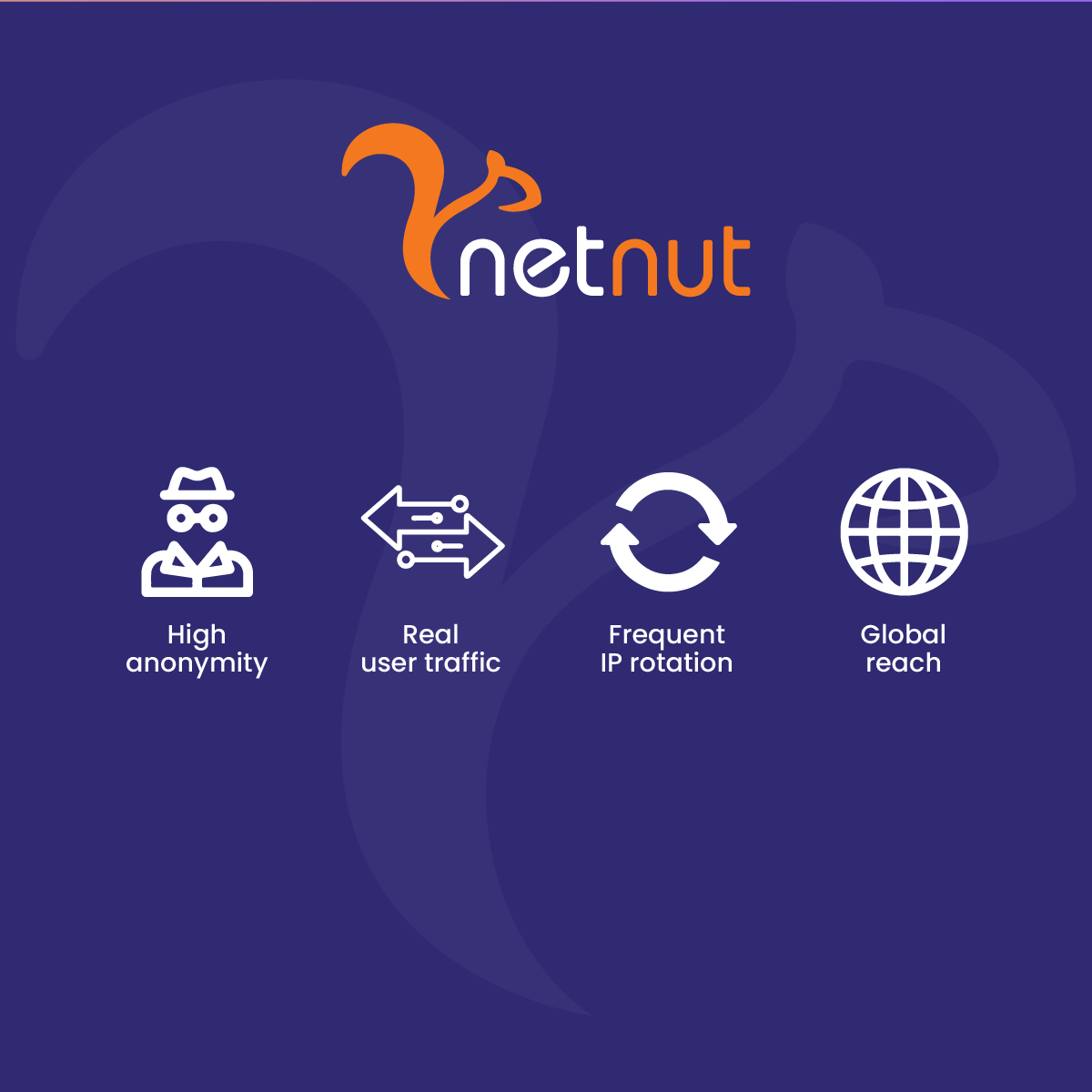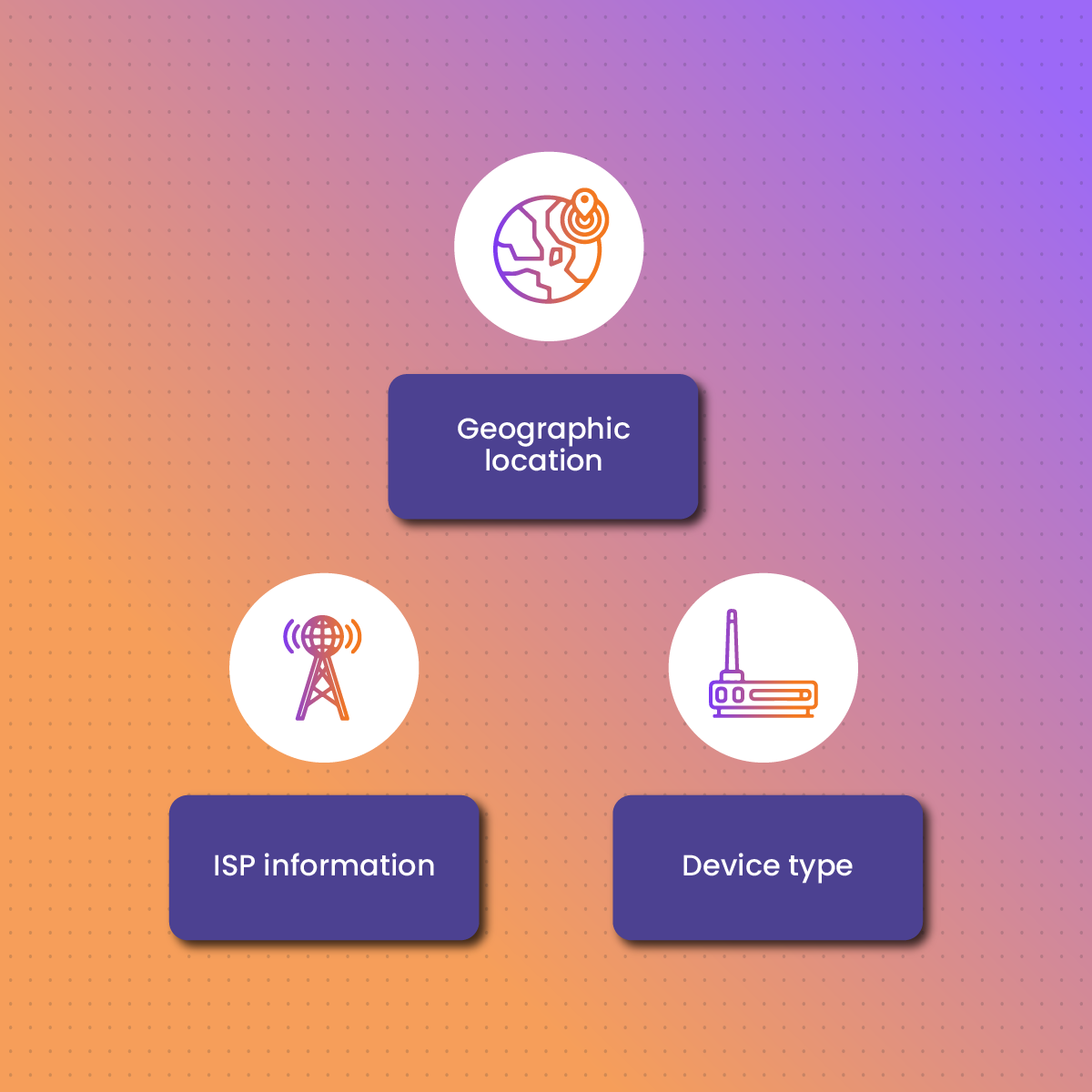The internet is full of questions about how to find personal information using various online identifiers, and one of the most common is whether it’s possible to find a phone number using an IP address. Many people wonder if they can connect the dots between an IP address and a specific mobile number, but the truth is that this isn’t as simple as it sounds.
In this article, we’ll explore whether finding a phone number using an IP address is possible, what information you can get from an IP, and the legal and ethical issues surrounding this topic. We’ll also touch on how using tools like proxies from NetNut can help safeguard your personal data and protect your privacy online.
Let’s dive into the mechanics of IP addresses, how they work, and what you can realistically obtain from them when it comes to tracking personal information like phone numbers.
Can You Find a Phone Number Using an IP Address?
At a glance, an IP address might seem like a key to unlocking all sorts of personal information about a user, but the reality is far from that. An IP address (Internet Protocol address) is essentially a digital identifier assigned to a device connected to the internet. It helps route data between devices over the web, allowing users to send and receive information. While an IP address can reveal some general details, like the device’s geographic region or the ISP (Internet Service Provider), it does not provide personal data like phone numbers.
This leads to the primary question: With an IP address, can you get a phone number? The short answer is no. IP addresses alone do not give you access to phone numbers or any other highly personal details about the user behind that IP. Here’s why:
What Information Can Be Obtained from an IP Address?
An IP address can reveal some useful data, but it’s mostly limited to:
- Geographic location: You can find out the general area, like the city or country where the IP address is based.
- ISP information: You can see which ISP is providing internet service to the IP address. For example, it could be a company like AT&T, Verizon, or Comcast.
- Device type: Sometimes, advanced tracking can reveal whether the device using the IP is a mobile phone, laptop, or desktop computer, but it won’t provide the phone number associated with that mobile device.
However, it’s important to note that this is as far as public data goes. Even though there are services that offer to trace IP addresses, they won’t provide specific details like the phone number, name, or address of the person using the IP. The more personal information, such as phone numbers, is only known by the ISP, and they are bound by strict privacy laws to protect that information.
Why IP Addresses Can’t Provide Phone Numbers Directly
The association between an IP address and a phone number is managed by ISPs. When you connect to the internet, your ISP assigns an IP address to your device. If you are using a mobile device, your mobile provider (e.g., Verizon or T-Mobile) assigns the IP. However, the ISP keeps this information private, and it isn’t accessible to the public.
In some cases, law enforcement agencies or authorized entities may be able to obtain a phone number linked to an IP address, but this requires a legal process, such as a subpoena, to access this data. NetNut’s proxy solutions ensure that this information remains private by anonymizing your browsing activity. When you use a residential proxy or mobile proxy from NetNut, your real IP address is hidden, further protecting your privacy and preventing unwanted tracking.
Key Takeaway: While IP addresses can provide general information, such as location or ISP details, they cannot reveal personal information like phone numbers unless accessed through legal channels by authorized entities.
How to Find a Phone Number by IP Address – Is It Possible?
Theoretical Possibilities
While it’s clear that you can’t simply look up a phone number using an IP address directly, some may wonder if there are indirect methods to achieve this. In theory, finding a phone number linked to an IP address is only possible under certain circumstances, but these scenarios often involve official authorities and strict regulations.
For instance:
- Law enforcement or legal channels: In some cases, if law enforcement agencies are investigating a cybercrime or a serious security threat, they can request information from an ISP to track the user behind an IP address. If the request is approved, the ISP can provide details, such as the subscriber’s phone number, associated with that IP.
- ISP Cooperation: An ISP assigns IP addresses to its users. While the ISP knows who the IP belongs to and can link it to a phone number or customer information, they are legally required to protect this data. Only under exceptional circumstances, such as a court order or legal process, can they disclose such information.
Advanced Tracking Technologies
Some advanced tools used by security researchers or ethical hackers can attempt to track the digital footprint of a user through open-source intelligence (OSINT) techniques. OSINT involves gathering publicly available information across the web. While it might be possible to correlate various pieces of online information to a specific user, even OSINT has its limits and is not a surefire way to link an IP address to a phone number.
However, these techniques are rarely used by everyday individuals and often involve ethical concerns. Most attempts to use these methods without proper authorization are not only ineffective but also potentially illegal.
Using proxies from NetNut can help protect you from these tracking attempts. NetNut’s residential and mobile proxies offer advanced anonymity, meaning that even if someone is trying to track your online behavior through your IP address, they won’t be able to link it to your personal information, including your phone number.
Can Proxies Help Protect Phone Numbers and Personal Information?
Role of Proxies in Maintaining Privacy
While it’s impossible for the average user to find a phone number directly from an IP address, protecting your personal data online is just as important. This is where proxies come into play. A proxy acts as an intermediary between your device and the internet, masking your real IP address and replacing it with another. This makes it much more difficult for anyone to track your online activities or associate your IP with your personal information, such as a mobile number.
NetNut’s proxy solutions offer a range of benefits for maintaining online privacy and safeguarding personal data. With residential proxies and mobile proxies, you can ensure that your real IP address is hidden from websites, advertisers, and malicious actors who might try to track or expose your information.

- Anonymity: When you connect to the internet through a proxy, your real IP address is replaced with a different one provided by the proxy server. This ensures that your browsing activity cannot be easily traced back to you.
- Geographic Flexibility: Proxies allow you to appear as though you are browsing from a different location. With NetNut’s global proxy network, you can choose from a wide variety of locations, further protecting your identity and making it harder for anyone to associate your IP with personal data like a phone number.
- Protection Against Tracking: Some websites and services use aggressive tracking techniques to collect as much information as possible about your device, including IP address, location, and browsing habits. NetNut’s residential and mobile proxies make it difficult for these trackers to follow your activity, preventing them from building a comprehensive profile on you.
Residential Proxies for Enhanced Privacy
Residential proxies are IP addresses that come from real residential users, making them indistinguishable from regular internet traffic. This type of proxy is ideal for users who want to maintain a high level of privacy while browsing the web. Because the IP addresses are assigned by ISPs to real households, they are far less likely to be flagged as suspicious or blocked by websites.
NetNut’s residential proxies provide:
- High anonymity: Since residential proxies come from real devices, they’re harder to detect or block, making them ideal for those looking to avoid unwanted tracking.
- Real user traffic: These proxies blend your activity with legitimate residential traffic, making it nearly impossible for anyone to isolate and track your activity.
Mobile Proxies for Ultimate Privacy on Mobile Devices
Mobile proxies use IP addresses from mobile networks, which are tied to real mobile users. These proxies are particularly useful for those who primarily use mobile devices and want to protect their personal information while browsing or using mobile apps. Mobile IP addresses change frequently, making them even more challenging to trace.
With NetNut’s mobile proxies, you benefit from:
- Frequent IP rotation: Mobile IPs tend to rotate more often, providing an extra layer of protection. Each time your device reconnects to the network, it is likely to get a new IP, further enhancing privacy.
- Global reach: NetNut’s mobile proxy network spans across various countries, allowing you to browse from different locations and avoid regional tracking efforts.
Legal and Ethical Considerations When Trying to Find Personal Information
When discussing the possibility of linking an IP address to a phone number, it’s essential to consider the legal and ethical implications. Privacy is a fundamental right protected by various laws worldwide, including the General Data Protection Regulation (GDPR) in Europe and the California Consumer Privacy Act (CCPA) in the United States. These regulations are designed to protect individuals from unauthorized data collection, ensuring that their personal information, including IP addresses and phone numbers, is kept private.
Key Privacy Laws to Be Aware Of:
- GDPR: The GDPR ensures that individuals have control over their personal data. It requires organizations to obtain consent before collecting personal information, and it enforces strict guidelines on how this data can be processed and shared. Collecting personal data like phone numbers without proper authorization can lead to significant fines and penalties.
- CCPA: Similar to GDPR, the CCPA grants California residents the right to know what personal information is being collected about them and how it’s being used. It also allows individuals to request the deletion of their data from an organization’s records. Under CCPA, unauthorized attempts to link IP addresses to personal details, such as phone numbers, could lead to legal action.
Attempting to find someone’s phone number through an IP address without their consent is generally illegal. This is why it’s crucial to avoid using unauthorized methods to obtain personal information and to respect privacy laws that protect individuals online.
The Fine Line Between Security and Privacy
While tracking IP addresses is often necessary for cybersecurity, fraud prevention, and law enforcement, there is a fine line between legitimate usage and privacy violations.
- Legitimate Uses: Law enforcement agencies may request access to personal data, such as phone numbers linked to an IP address, but this requires a legal process and a valid reason. This could include investigations into cybercrimes or serious security threats.
- Malicious Intent: On the other hand, using IP addresses to track down personal information for unauthorized or malicious purposes, such as stalking or hacking, is illegal and unethical.
NetNut’s proxies can help individuals stay safe online by making it harder for malicious actors to track their IP addresses or collect personal data without consent.
Legal Consequences of Misusing IP Data
Misusing IP address data to attempt to find a phone number or other personal information can lead to severe consequences:
- Fines and Penalties: Under regulations like GDPR or CCPA, organizations or individuals caught violating privacy laws could face substantial fines.
- Criminal Charges: In some cases, particularly when personal data is used for malicious intent, violators can face criminal charges. This could involve charges related to identity theft, harassment, or unauthorized access to personal information.
Protecting yourself from unauthorized tracking is key to maintaining online privacy. With NetNut’s residential and mobile proxies, you can ensure that your browsing data remains private and that your personal information, such as your phone number, cannot be easily accessed by third parties.
Conclusion
In summary, finding a phone number using an IP address is generally not possible due to privacy protections and legal barriers. While IP addresses can reveal general information, such as geographic location or ISP details, they cannot provide specific personal data like phone numbers. Additionally, attempting to track this kind of information without proper authorization is illegal and unethical.
To protect yourself from potential tracking and unauthorized data collection, using NetNut’s proxy services is an excellent solution. By masking your real IP address with a residential or mobile proxy, you can maintain your privacy online and ensure that your personal information remains secure. Whether you are concerned about protecting your phone number or avoiding unwanted tracking, NetNut’s proxies offer a reliable way to stay safe online.







